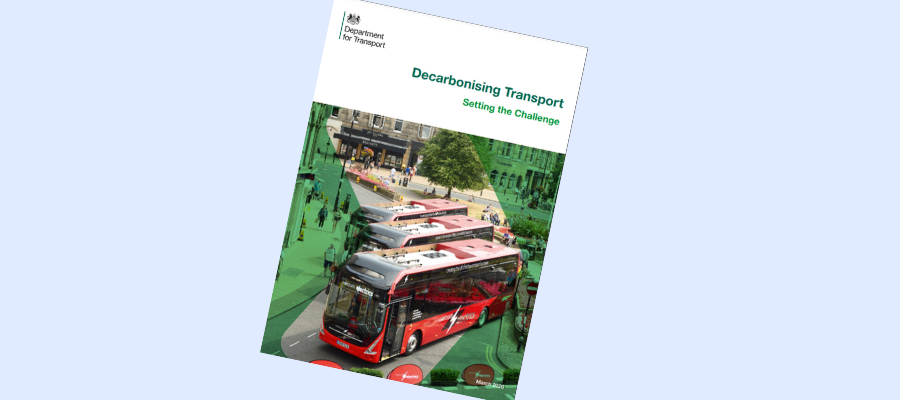🕒 Article read time: 3 minutes
Decarbonising transport

Expected to be released this spring, the government’s Transport Decarbonisation Plan promises to provide logistics businesses with guidance on how to achieve net-zero transport emissions by 2050.
GOVERNMENT MUST PLAY ITS PART
The logistics industry, including road transport, is fully committed to achieving net-zero transport emissions by 2050, but government must also recognise the vital role it needs to play. Logistics UK is calling for government to aid industry by creating simple and consistent rules for grants and taxation, as well as urban restrictions and regulations.
“Businesses have faced extreme operational and financial pressures over the past year,” said Denise Beedell, Logistics UK’s Policy Manager for Vans and Urban, “and it is crucial that government works together with Logistics UK and the wider industry to ensure the best solutions for all.”
LIMITED OPTIONS FOR ALTERNATIVE FUELS
Switching to zero and ultra-low emission vehicles is an important focus for the logistics industry. Logistics UK was disappointed to see the changes announced in March to the government’s plug-in car, van and truck grants, which have been reduced for the vast majority of available models.
“Logistics UK’s members are committed to making the switch to alternatively fuelled vehicles,” Beedell said, “but with the market still to reach maturity, options are limited for operators and reducing the financial support will hinder this transition. To enable operators to make a change within the lifecycle of their normal vehicle, it is imperative that government lays out a clear policy road map to enable operators to invest confidently, while encouraging manufacturers to develop and launch a wider range of suitable vehicles.”
ELECTRIC AVENUE
Following last year’s government announcement that sales of new diesel vans will end by 2030, the uptake of electric vans is expected to gather pace rapidly in the next few years.
Beedell said: “To support this transition, it is vital that van operators have sufficient power supply at their depots to charge their whole fleets and where local power supply upgrades are required, the business should not be required to fund the work in full. A fair and equitable funding solution must be found.”
PLAYING THE LONG GAME
Longer semi-trailers (LSTs) also offer an opportunity for reducing emissions and improving operational efficiency. The Department for Transport (DfT) trial for LSTs began in 2012, with positive results: in the first seven years of the trial, increasing the length of just 0.5% of HGVs by 12% saved around 37,000 tonnes of carbon dioxide equivalent emissions. While the trial was scheduled to end in 2027, Logistics UK has successfully convinced government to bring LSTs into mainstream use in the UK. DfT consulted recently on a mechanism for achieving this; Logistics UK is working to ensure that any process is as least burdensome as possible and recognises existing duties which will apply to LST operators as operator licence holders.
MULTIMODAL MATTERS
Positive steps are also being taken across other transport modes. In rail freight, electrification is key, alongside support for alternative technologies such as hydrogen which needs further research and development in order to become a viable option for heavy freight trains. In air, important trials are being undertaken by various companies, including Hybrid Air Vehicles (HAV) which is currently testing low emission hybrid-electric flights. Logistics UK is calling for government support for research and development funding looking at alternative fuels and technologies. Maritime is also taking positive steps to meet the net zero target in port and inland waterway operations by using electric alternatives for port side and wharf operations.
“Overall, encouraging steps are being made across all sectors of the industry,” Beedell concludes, “and it is vital that government continues to work with Logistics UK and its members, to ensure progress continues.”
*www.logistics.org.uk/campaigns/environment-overview
Published On: 08/04/2021 17:00:53

Comments Section
If you are a Logistics UK member login to add comments.